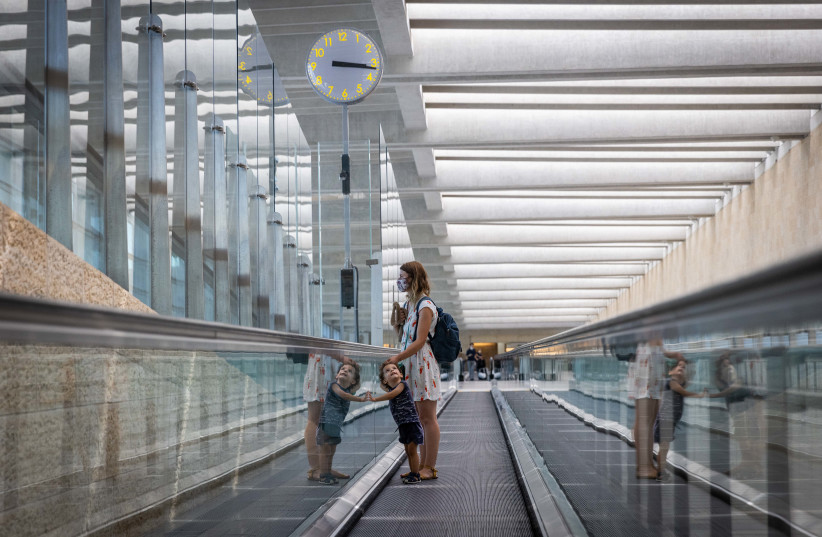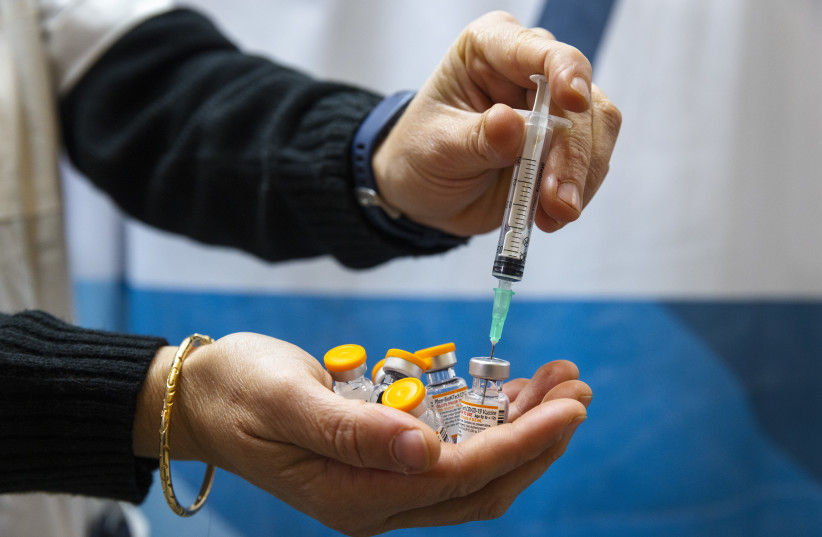According to the Health Ministry’s recommendation, the ban is scheduled to come into effect at midnight between Tuesday and Wednesday.

The government should classify Italy, the United States, Belgium, Germany, Hungary, Morocco, Portugal, Canada, Switzerland and Turkey as “red” states and place them under a travel ban, the Health Ministry recommended Sunday.
The recommendation requires the approval of the coronavirus cabinet. A joint hearing of the Knesset Law and Constitution and Health committees, which also need to green-light the measure, was scheduled for Monday morning.
Israelis are not allowed to travel to red countries unless they receive special permission from a governmental Exception Committee. In addition, if they return to Israel, they need to be quarantined for a minimum of seven days, even if they are fully vaccinated, including the first day in a coronavirus hotel – at least until they receive the result of the PCR test taken upon landing.
Individuals who are not considered protected are required to remain in the hotel for seven days.

Also on Sunday, the Constitution Committee approved the government’s decision to add the United Arab Emirates, Ireland, Norway, Spain, Finland, France and Sweden to the list starting Monday.
The group of red countries already includes the UK, Denmark, South Africa and several dozen other African nations.
Israel’s borders have been closed to foreign nationals since the end of November.
“This government did a major thing when it made a quick and strong decision around three weeks ago to restrict entry to Israel and greatly delayed the entry of the variant to Israel,” Prime Minister Naftali Bennett said while opening the weekly cabinet meeting. “We bought precious time for the State of Israel and we delayed the Omicron by at least three weeks.”
Foreigners are allowed to enter the country only in very limited circumstances, which include certain categories of visa holders and foreign workers, experts, athletes, artists, individuals in need of medical treatment or humanitarian cases.
In addition, some relatives of Israelis are eligible to enter not earlier than a week before a life-cycle occasion: parents, siblings or grandparents of a bride or groom; first-degree relatives of parents of a bar/bat mitzvah boy/girl; and parents of a couple about to give birth.
Parents of lone soldiers or national service volunteers and foreign spouses of Israelis are also allowed to visit.
All these individuals still have to receive special permission through the Foreign or Interior ministries.
However, if the country they are from is classified as red, the only exceptions allowed are parents of a bride or groom and people holding a temporary residence visa whose center of life is in Israel and have a connection with an Israeli citizen (spouse, child).
Yad L’Olim founder Dov Lipman, a former MK, said he met on Sunday with representatives of the Health Ministry to ask for additional exceptions to be added: vaccinated parents of lone soldiers and of couples about to give birth, and grandparents and siblings of brides and grooms.
Yad L’Olim was established this year and aims to help new immigrants navigate their new life in Israel, including the bureaucracy.
Over the past few months, the NGO has been focusing on supporting immigrants and their family members abroad to ensure they could see each other in spite of the pandemic.
Speaking before the joint Knesset committee, Lipman asked to allow foreign students in Israel on a visa, lone soldiers, and professionals who work abroad to be able to travel in both directions. He also asked for more transparency regarding the work of the Exception Committee, which is tasked with granting such authorizations.
“We still do not know who they are, when they meet and how they work,” Lipman said.
As of Sunday, there were 175 Omicron cases in Israel, and most of them had returned from abroad or were individuals who came in contact with them, the Health Ministry reported.
In recent days, 17 passengers tested positive for COVID on an individual flight from the US, many of whom are suspected of carrying the variant, a Health Ministry official told the joint Knesset committee.
As reported by The Jerusalem Post
